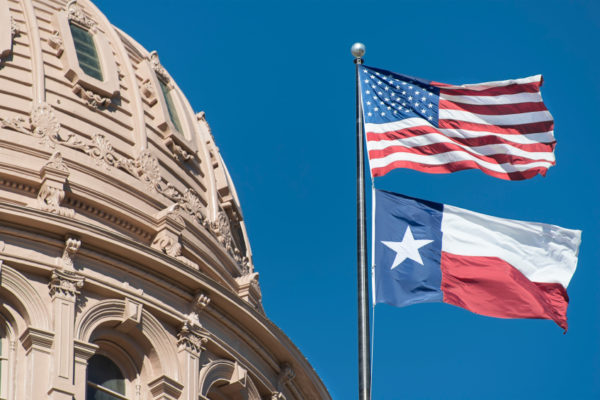Republican leaders are waging a war on LGBTQ youths in Texas. News recently broke that the Texas Department of Family and Protective Services, the agency that oversees the state’s foster care system, removed two webpages providing resources to LGBTQ youths, including a suicide prevention hotline. A few days later, the Texas House advanced House Bill 25, which prohibits transgender youths from participating in school sports teams that align with their gender identity. It is now law.
Advocates have pointed out the importance of linking these recent attacks on LGBTQ youths to Senate Bill 8, the recent Texas law that bans abortions after six weeks of pregnancy. Both HB 25 and SB 8 deny individuals’ ability to control their bodies and their lives. As advocates have argued, SB 8 puts a special burden on transgender men and nonbinary pregnant people who already face significant barriers in securing reproductive care.
It is also important to consider recent attacks on LGBTQ youths in light of allegations of rampant mistreatment within Texas’ juvenile prisons. The U.S. Department of Justice just announced that it is investigating allegations of sexual and physical abuse at five Texas juvenile prisons in response to a complaint filed by Texas advocacy groups more than a year ago. This complaint accuses corrections officers and staff members of forcing incarcerated youths to engage in sex, encouraging them to fight one another, and using excessive force and chemical sprays to subdue them. The complaint also draws attention to the prisons’ inadequate mental health care and high rates of attempted suicide.
Abuse within Texas’ juvenile prisons may appear disconnected from political attacks on LGBTQ youths, but it reflects the vulnerability of this population in Texas, as well as state leaders’ utter disregard for their well-being and survival. Experts estimate that nationally, 13%-15% of youths who come into contact with the juvenile justice system are LGB or gender nonconforming, even though they represent only 5%-7% of the overall population. About 300,000 LGBTQ youths are arrested or detained each year, and more than 60% of them are Black or Latino. Studies have found that within correctional facilities, LGBTQ youths experience disproportionate isolation, punishment, neglect and violence.
Taken together, the anti-trans sports ban, the abortion ban, the ongoing abuse of incarcerated youths and the state government’s withdrawal of LGBTQ suicide prevention resources reveal the tremendous level of violence that queer and transgender young people face in this state. By attempting to legislate what sports teams young people can join, lawmakers are fostering discrimination and bullying against young Texans while simultaneously denying them access to life-saving resources, and standing by when they are abused within the state’s juvenile justice institutions.
But amid it all, young people are leading the battle against this campaign of hate. Despite the more than 75 anti-LGBTQ bills introduced by lawmakers since January, many of which targeted transgender youths, transgender, nonbinary and intersex young people have shown up repeatedly to the Texas Capitol. They have resisted the Legislature’s cruelty and instead offered a different vision for the state of Texas, one that values the LGBTQ community. These young people are supported by a coalition of activists from Equality Texas, the Transgender Education Network of Texas, ACLU of Texas, Human Rights Campaign, Lambda Legal, and the Texas Freedom Network who have persisted in fighting some lawmakers’ relentless attacks.
Texas lawmakers did not listen. Instead, they passed another bill constricting Texans’ ability to live fully. After sending HB 25 to the governor, Republican lawmakers rushed to finish the redistricting process in a blatant attempt to disenfranchise voters of color and strengthen their hold on the state government. If the courts allow these new maps to stand, the recent attacks on LGBTQ youths in Texas might be only the beginning.
Lauren Gutterman is an associate professor of American studies at The University of Texas at Austin.
Erika Slaymaker is a doctoral student in sociology at The University of Texas at Austin.
A version of this op-ed appeared in the San Antonio Express News, Austin American-Statesman, Waco Tribune Herald and the Abilene Reporter News.




